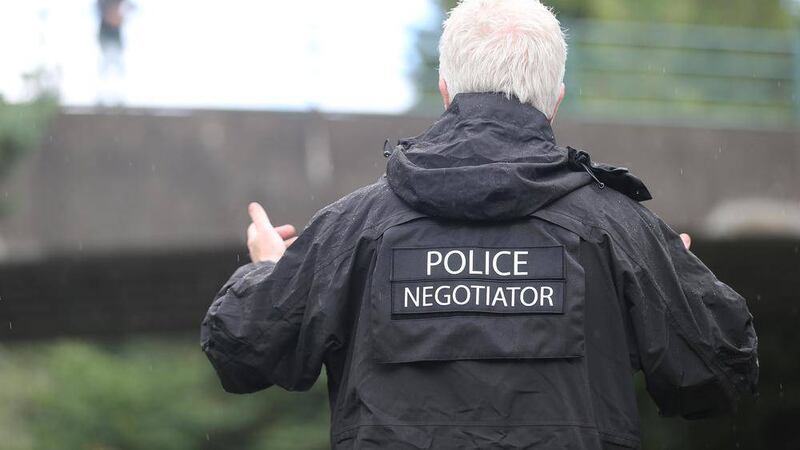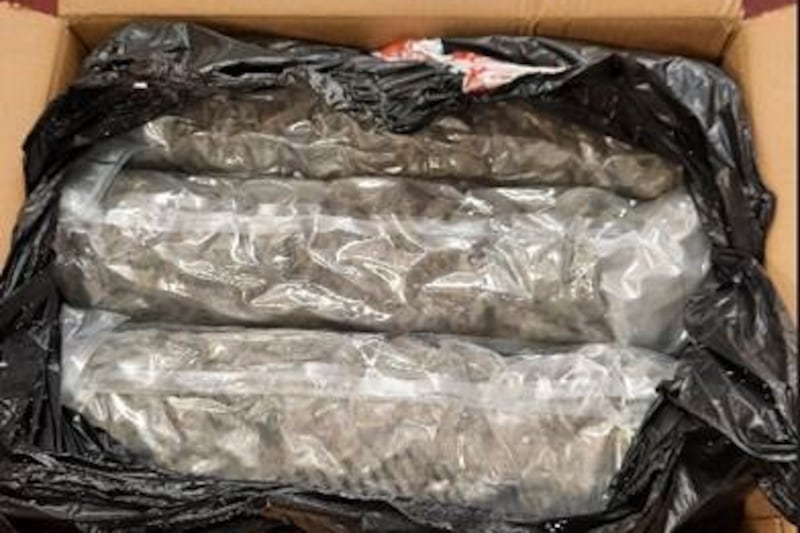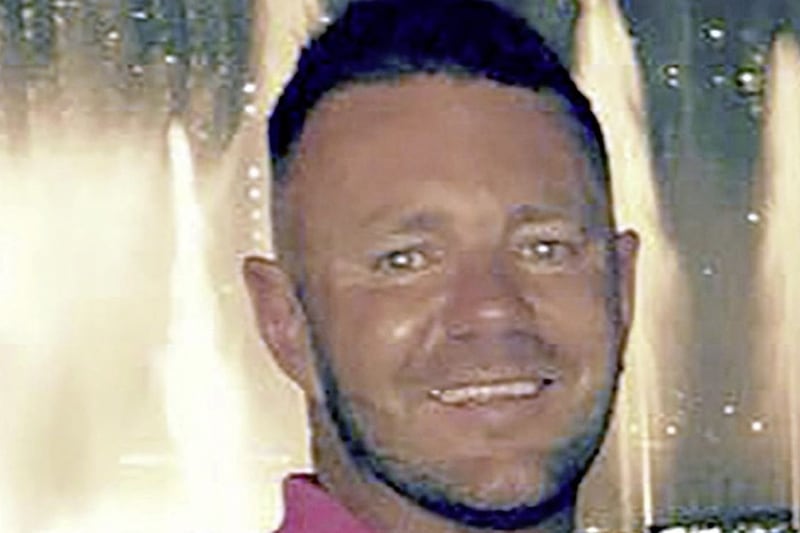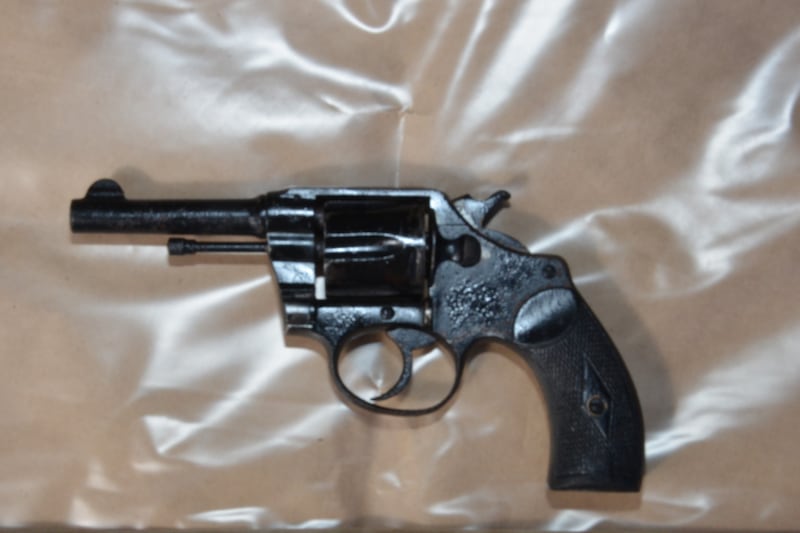"IT'S not like Wesley Snipes," Detective Inspector Peter Galbraith warns at the beginning of the interview.
He's probably not referring to tax dodging (Snipes was sentenced to three years in prison for "wilful failure to file federal income tax returns") - although it's always good to make these things clear to HMRC.
Given he is a PSNI negotiator co-ordinator, it is more likely Mr Galbraith is trying to play down any expectations of a Hollywood movie-style cop.
Indeed, local police are so dismissive of the genre that they clearly don't even watch such blockbusters as it was actually Samuel L Jackson who starred in `The Negotiator' alongside Kevin Spacey, not Snipes.
They do have the bespoke black flak-jackets with negotiator emblazoned on the back and they are trained in hostage negotiation.
As a nationally-trained negotiator, Mr Galbraith has himself been asked to help in situations across the world - the UK and the US are seen as the gold standard internationally - but he is tight-lipped about the details.
"I have been involved in deployments abroad and training on behalf of the national `cadre' following requests from governments and the Commonwealth Office."
Fair-haired, his neat beard, spectacles and quiet considered voice have more in common with a university lecturer than the high-octane police negotiator of popular imagination.
He is one of six co-ordinators who manage 20 negotiators that between them provide a 24/7, 365 days a year service within the PSNI.
In January, a team were involved when a man locked himself inside his apartment at a Derry sheltered residence for homeless people and registered alcoholics and threatened to blow himself up with hand grenades during a five-hour stand-off.
Residents were evacuated from the building and the street was sealed off, with armed response officers first attempting to make contact before negotiators were able to talk to him by phone during the "fluid and very delicate situation".
Each one of the negotiators has their own day job within the service; Mr Galbraith works in within "criminal justice in criminal investigation", but there are always three officers and a co-ordinator on call and ready to travel the breadth of Northern Ireland.
This can be a long journey, as those on call on any given day might be nowhere near the crisis that is speedily unfolding.
As is often the case in the north, the majority of personnel are around the greater Belfast area, with a number scattered between Banbridge, Armagh and up towards Coleraine and the north coast.
"When doing selection (it's) very difficult to select people geographically," Mr Galbraith explained.
It's a stringent selection process, with new posts advertised within the service and open to officers usually of the rank sergeant and inspector - any higher up the ranks and the requirements of high office reduce availability, but any lower does not have useful experience in line (and thus people) management.
There is a natural attrition rate for various reasons, from moving posts to a role that doesn't allow the commitment, or changes in personal circumstances.
"All our negotiators are volunteers - its a strange role within the police. Normally someone tells you what to do and you have to do it because it's an organisation that is about discipline.
"But you're asking people to deal with people in crisis and life-at-risk situations."
There have historically been a high number of responses, but that is changing.
"It's fair to say, with the way policing has gone with demands on officers, there are fewer officers and fewer people volunteering for jobs these days that there would have been in the past.
"It's just one of those jobs where you have to be in a position to drop everything and go."
Psychometric tests help to whittle down the applicants and a small number can also be lost at the training stage when suitability and lack thereof become evident.
Candidates go through role play scenarios and psychologists are involved in the assessment and the training is Pass/Fail.
The failure rate has been high in recent year. On UK courses, which are taken after the regional one run by PSNI, around two or three of the 24 students drop out.
"There is a certain amount that you can teach, but a lot of it is inherent - people who are very good at communication. People who are good at listening. Being able to effectively listen is probably more important than being good at talking - taking in facts, assimilating those and using the information that you get."
PSNI negotiators are busier than you may think - a good negotiation probably doesn't make the news.
There are 120 deployments a year - roughly one every three days - and the vast majority (80-85 per cent) are "around suicide prevention".
"The vast majority are around simply dealing with people and responding to people in crisis," Mr Galbraith said.
Unlike in the US, British-trained negotiators aim to be face-to-face rather than on a telephone and dressed down in civilian clothes.
"We tend to go out and speak to a lot of people, rather than through a window or a door, provided to do so."
If it's not safe, they have ballistic protection gear and the personal protection weapon all officers in Northern Ireland carry.
They also deal with `domestic barricades' - where disputes have got out of hand and someone has locked themselves in a property with or without hostages - sieges and `criminal-type barricades' where police have gone in to make an arrest and someone has locked themselves inside.
In many of these cases the key to resolution is finding a way to end the stand-off by allowing the person involved to save face.
Rarer in recent years are kidnap and terrorism-related, of which there are only one or two a year.
"It all goes in cycles. There was a time when there would have been more tiger-kidnappings. There aren't now but they will be again."
All requests for helicopters and other `getaway vehicles' are "passed to the operational commander".
"We don't make concessions. We are there to find out what they want and help resolve the situation.
"If somebody requests a car that has to go back to the commander. We don't make decisions, although we may contribute by offering our view."
The calls for help come in from officers on the ground to the co-ordinator who assembles a two-person team that makes its way to the site in one of three dedicated emergency response vehicles or, in extreme circumstances, one of the police helicopters.
"At any point in time there are three officers on call - a co-ordinator and two negotiators. If the deployment is somewhere like Irvinestown (Co Fermanagh) say we would look to air support. It depends whether need to get fire arms officers up - they would take priority," Mr Galbraith said.
Meanwhile, the co-ordinator is working to try and find out as much about the person as possible to help the negotiator build up a rapport.
The focus, he says, must be in the moment and in trying to achieve a resolution to a particular situation rather than solve all of the problems of what may be a very disturbed individual.
"You have to prevent yourself from becoming too emotionally involved. you have to know it's not something that can be treated by you and to know your boundaries.
"What is success? We don't know what happens after we leave. I'll not go back to them again. I'll just walk away because otherwise it could be very difficult and we wouldn't be able to do our job.
"I have heard people say `How many people have you lost this year?' I don't this about `this year'. It's not my choice, I don't make the choice to (die by suicide) or... that's the individual's choice."
Psychologists are also on-call in such situations, having volunteered to help police.
Despite rejecting the notion of "success", there is no doubt that the involvement of police negotiators is helping to save lives.
"I have been doing this now for 15 years and in that time, over 15 years, I can only thing of maybe two or three fatalities. There are a very low rate of fatalities.
"We do have some very sad cases. It's very much out of our control.
"Negotiation for me, for our staff is about trying to make a difference for a short time, trying to bring people back from a period of crisis. We're just a sticking plaster. Many you end up talking to again."
Alcohol, drugs and increasingly mental illness have a big part to play in a lot of crisis, he says; and increasing number of calls are coming in for help with high-risk missing persons. Negotiators help construct text messages that are sent to the person's phone, encouraging them to make contact.
In many ways it's a low key job.
"Largely negotiation goes on behind the scenes. Nobody really notices it and that's OK. It's more important to be able to do it rather than worry about who knows about it.
"The majority of our jobs are resolved within two hours. You rarely get more protracted that go for hours and hours and hours."
But it can be high octane on occasion.
"The longest one I remember was in 2002, a siege at a house where there was a guy with mental health issues holding his son. That went on for 14 hours before armed intervention.
"The perpetrator was holding his son with a knife to his throat and had barricaded himself in with a bed across the stairs. It just got to the point where the guy's mind deteriorated and deteriorated and the risks were too high.
"There were two or three occasions where were thought `This guy is going to do it'. We had taken it as far as it could be taken and handed it over to tactical support (the elite gunmen)
"I don't remember anything about that. One moment I was standing in his house, the next I was lying in the garden covered in grass."
That could be any call out on any given day. Negotiators have to be prepared for it, but it's not the norm.
"The vast majority of what we do is dealing with ordinary people who find themselves in extraordinary situations."








